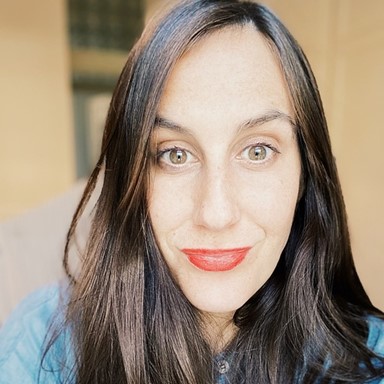
By Jessica Brannigan, lead people scientist, Culture Amp
But recent data suggests instead that women are often having to relinquish work because of the insoluble predicament they face – how to achieve an acceptable work-life balance while maintaining realistic career prospects..
Women’s representation in UK employment has fallen from a high of 72.7% as 2019 ended to 72.2% by the end of 2021. For UK caregivers in particular, the issue is paramount because childcare costs here are so high. Whether to stay in work has become an acute question – and even more so for women from minority backgrounds.
The most common UK employment sectors for women are health and social work – the areas hit hardest by job instability. Worse still, twice as many women as men are in the bottom 10% of earners while IFS data show that 15% of workers in shutdown sectors are from minority backgrounds compared to 12% of all those employed. The intersectional effects of being a woman and from a minority background are severely impacting women’s work prospects.
Our latest DEI report suggests that divisions are deepening. Women’s responses to questions about the fairness of the division of workloads, strongly suggest a continuing struggle to balance work and personal life. Women also respond less positively when discussing managing caregiving responsibilities as they transition back to work. These findings indicate that women are doing more work – in and out of the workplace.
Gender ‘norms’ exacerbate this divide. Joanna Syrda’s research suggests that when a woman earns more than her male partner, she still does more of the housework. And, astonishingly, “the more they earned over their partner, the more housework they did”.
Thus while lower-paid women confront difficult decisions about childcare and whether to stay in work, higher-earning women face a different dilemma: childcare is within reach but housework and caregiving burdens outside work are still increasing the pressure on their workloads. Despite talk of a fairer economy post-hybrid working, women remain in a double bind over their work prospects.
Our own DEI data offers some cause for celebration though. Women’s responses to questions about their career prospects showed increased optimism across the board.
We also saw a narrowing in the notorious gender divide around “administrative tasks that don’t have a specific owner are fairly divided at [company]” – suggesting that taking responsibility for ‘unseen’ tasks like room set-up is starting to even out between women and men. But this change might also be happening because wider remote working reduces opportunities for such microaggressions.
We found heartening signs over women’s managerial effectiveness. Our manager effectiveness surveys – examining data from more than 140,000 managers with 2.5 million direct reports – showed female managers are rated higher than men. And the biggest difference between these genders? Female managers build a fairer and more diverse environment for teams than men.
However, these accomplishments haven’t translated into career progress. Among entry-level managers, 59% identify as male with only 41% female. By the next level (managers of managers), men outnumber women by 2:1, and of those supervising three levels of management, that ratio jumps to 3:1. These findings embody McKinsey’s ‘broken rung’ on women’s career ladder. Within Culture Amp’s research, the biggest difference between these genders in their perceptions of line management was that women said they were better recognised and their career was advancing when their manager was a woman.
Disadvantages for women are striking. What steps can organisations take to remove workload imbalances and ensure greater fairness for women in their careers?
Firstly, organisations need to collect regular data to observe how employees’ workplace experiences differ and where inequalities are present; being able to view employee feedback from engagement surveys through the specific lenses of gender and caregiver status can be crucial in understanding such chronic issues.
Second, regular surveys and data analysis enable organisations to be more nuanced in examining differing experiences, for example, applying the lens of intersectionality. Using wider demographic lenses on employee data enables us to see deep patterns that demand attention.
Worldwide experience from data-driven DEI programmes shows that companies shouldn’t treat “women” as a single, unified group while initiatives focused solely on empowering “women” often fall short of delivering equitable progress for all women.
To be successful, women’s empowerment initiatives must go beyond a “women-first” approach and consider identities like race, caregiving and disability status. Without an intersectionality filter, DEI initiatives may end up benefiting only subsets of the working population: those who are already ahead, such as White women, women with access to higher education or from higher-income backgrounds.
The third part of the advancement puzzle concerns the performance review process – the key to unlocking motivation, promotions and managerial status. Implementing a process more focused on transparency and fairness, brings advantages for an entire workforce, but our analysis indicates this is particularly beneficial for women.
When we studied companies that implemented new performance processes, all of them achieved a 4-6% improvement in perceptions of the process’s fairness and managers showing interest in direct reports’ career aspirations.
And the biggest improvements in these positive perceptions came from women respondents, with a clear narrowing of the big gap previously observed in these genders’ sentiment towards their organisation’s performance processes. More effective performance systems could be a way to eradicate gender disparities at a stroke.
By better recognising the issues facing women at work and taking tangible steps toward fairness, we can improve the world of work for all women.
 Jess Brannigan, MSc, is a Lead People Scientist for Culture Amp. She has more than a decade of experience in the people and culture space encompassing in-house HR and workforce development roles, in-depth leadership assessment and coaching, human capital consulting and talent & career development. Prior to joining Culture Amp, she led a programme at Oxford University’s Saïd Business School to enhance the leadership skills, and personal and career progression of MBAs entering high-profile careers.
Jess Brannigan, MSc, is a Lead People Scientist for Culture Amp. She has more than a decade of experience in the people and culture space encompassing in-house HR and workforce development roles, in-depth leadership assessment and coaching, human capital consulting and talent & career development. Prior to joining Culture Amp, she led a programme at Oxford University’s Saïd Business School to enhance the leadership skills, and personal and career progression of MBAs entering high-profile careers.
October
01nov09:0016:30KIN: Know. Inspire. Navigate | A Day for Women to Realign, Renew, and Rise
01/11/2025 09:00 - 16:30(GMT+00:00)
Henley Business School, Greenlands
Henley-on-Thames, RG9 3AU
Set on the tranquil banks of the River Thames, Henley’s historic Greenlands campus offers the perfect backdrop for a day of reflection, connection, and
Designed for early to mid-career women across industries who want practical tools they can use immediately, this one-day retreat follows the Kinspace KIN framework – Know, Inspire, Navigate – guiding you to:
This is not just a feel-good day. It’s sustainable learning – you will leave with your own action and implementation plan tailored to your life, so you can apply what you’ve learned immediately and keep building momentum long after the retreat.
In the afternoon, slow down and reconnect with your senses in a mindful pressed flower card crafting, writing to self and picture workshop. We’ll ask a few questions ahead of time so we can pair you by goals and stage, and tailor examples to your context. Then, step outdoors for a unique partner reflection in nature – partnering with both the landscape and each other to inspire deeper insight and grounded action.
To help you stay accountable and supported, you’ll have the option to join three monthly follow-up group sessions (at a separate price) designed to check in on your progress, troubleshoot challenges, and keep you moving towards your goals.
This is a confidential and supportive space with limited seats to ensure meaningful connection and participation.
Date: Saturday 1 November 2025
Time: 9:00 AM -4:30 PMT
Location: Henley Business School, Greenlands Henley-on-Thames
RG9 3AU
Price: £250 – Early Bird £200 until 10 September
01nov10:0018:30The ADHD & Women Summit - London | Seed Talks
01/11/2025 10:00 - 18:30(GMT+00:00)
Woolwich Works
11 No 1 Street London SE18 6HD
A one-day series of talks and workshops from world-leading experts. Learn about ADHD and the distinct ways women
Learn about ADHD and the distinct ways women experience it from leading experts at this groundbreaking conference.
Research shows that in childhood, boys are diagnosed with ADHD 3-4 times more than girls. By adulthood, the ratio evens out to nearly 1:1 highlighting how girls and women with ADHD are often misdiagnosed and misunderstood in the medical framework.
With increased diagnoses and growing strains on the NHS and other support services, the ADHD & Women Summit aims to increase awareness and knowledge on the specific issues women with ADHD face.
This will be Seed Talks’ largest event to date, with our best speakers, most engaging workshops and favourite partners all in one space.
👭 Connect and network with like-minded individuals
🧬 Discover practical strategies for navigating life with ADHD
🎓 Hear from leading experts – including those with lived experience and those working in the field
👩🏫 Immerse yourself in a full day of talks and workshops
